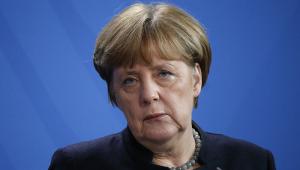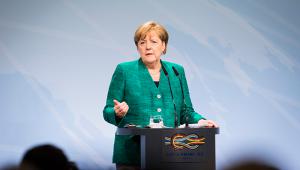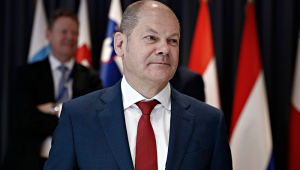Merkel told a conference hosted by the BDI umbrella-body today that the corporate taxation landscape has “changed very unfavourably for Germany in recent years”.
“Competitive relations have recently changed very much to our disadvantage. So we will try, in the grand coalition, to achieve something here,” she added.
At the same conference, the lobby’s head called for “serious and responsible leadership” from the coalition government, which has wobbled since Merkle’s conservative alliance and their Social Democrats partners suffered heavily in May’s European elections.
“The government has lost a lot of trust” as well as support from business and the younger generation, BDI President Dieter Kempf said.
He accused the government of “faint-hearted implementation of piecemeal social policies and an unhealthy level of redistribution”.
As well as echoing calls for tax cuts, Kempf added companies were also “waiting for answers” on climate policy.
Merkel highlighted her unity with the BDI in the Nord Stream 2 gas pipeline from Russia to various European countries, adding the project was necessary to balance Germany’s planned withdrawal from nuclear power by 2022 with efforts to wind down coal use.
Three regional leaders have taken the reins of the SPD after former leader Andrea Nahles’ shock resignation on Sunday - following the party’s poor results in the European elections - which threatened the coalition’s collapse.
The trio today said it would remain on board for the time being, but fears still remain that their party could pull out, forcing Merkel to form a minority government, string together a new coalition or call snap elections.
The chancellor downplayed such concerns yesterday, referring to the parties’ signed coalition agreement.
“I don’t get the impression that this is a sign of instability, it’s rather a process of the SPD finding itself,” she told Bloomberg.
The SPD is expected to make a decision by June 24 as to whether it will remain in the coalition.













